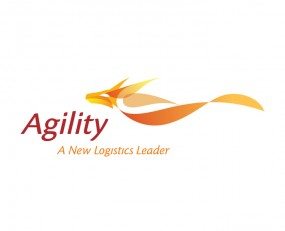
Agility has reported first-half earnings, with its EBITDA declining by 20.1% Y-o-Y, to KD75.8m; while net revenue dropped by 3.7% to KD243.6m and its net profit decreasing by 61.3% to KD16.2.
Agility Global Integrated Logistics (GIL)
Global Integrated Logistics’ first-half EBITDA was KD28.8m, a 1.3% increase Y-o-Y; this was mainly driven by strong Contract Logistics, Project Logistics, and Air Freight results, as well as a sharp focus on containing costs; while net revenue was KD135.8m, in line with last year’s performance. Net revenue increased in Contract Logistics, Project Logistics, and Air Freight, but fell in Ocean Freight and Fairs & Events. GIL gross revenue was KD570.6m, a 2.5% increase Y-o-Y.
Volumes were down in both Air Freight and Ocean Freight in the first half of this year, by 23.6% in Air Freight (tonnage) and 14.8% in Ocean Freight (TEUs), due to COVID-19 impact on demand. However, H1 saw higher yields in Air Freight due to capacity shortages and a spike in demand for urgent shipments of PPE and other medical equipment. First-half Air Freight net revenue increased 17% Y-o-Y, while Ocean Freight net revenue decreased 16% Y-o-Y.
Contract Logistics achieved healthy growth with 7% net revenue growth, mainly in the MEA Region (Kuwait, Saudi Arabia) as the result of the addition of new facilities and increased operating efficiencies. Project Logistics showed strong performance across all regions with 25% net revenue increase, driven by new capital projects and positive volume development from existing customers. Fairs & Events net revenue fell 46% with the cancellation and postponement of key events.
Starting in Q1, GIL introduced a range of both temporary and permanent cost reduction measures in response to the pandemic. The measures are intended to ensure continued strength of profitability performance during a period of falling and volatile global trade activity.
Agility’s Infrastructure Companies
Agility’s Infrastructure group EBITDA declined 18% to KD56m for the first half of 2020, while net revenue fell 8.4% and gross revenue declined 10.2%.
ALP revenue grew 4.5% in H1 amid increased demand for warehousing space, mainly from suppliers of medical equipment and food. ALP also witnessed strong demand from e-commerce players. ALP accelerated delivery of a few projects to meet customer demand. Developments in Kuwait, Saudi Arabia and Africa are proceeding as planned, despite some interruptions due to lockdowns.
Tristar posted a 10% revenue decline. Despite that, Tristar’s contractual business model provided resiliency, allowing profitability to grow by double digits during the same period.
NAS reported a revenue decline of 29%, despite performing well in January and February. In March, NAS revenue came under pressure as airlines and airports curtailed or halted flights and related services; despite that NAS continued to serve evacuation flights, private jets, and cargo freighters. With airport and carrier activity resuming in some locations, NAS is seeing increased demand for its services.
The pandemic impacted UPAC, which saw revenue fall 51.8% in H1 due to the cessation of operations at the Kuwait International Airport.
At GCS revenue fell 21%, due to precautionary measures taken by the Kuwait Government in response to COVID-19. Some border areas were closed temporarily starting March, curtailing trade and causing decreases in GCS revenue.
Tarek Sultan, Agility Vice Chairman and CEO, said the economic fallout from the pandemic has had an uneven effect on Agility businesses. “In many instances, we are experiencing accelerated adoption of disruptive and emerging technologies related to the COVID-19 pandemic or underlying CSR paradigms. Other Agility businesses, such as aviation and airport operations have been directly impacted by the decline in air travel and traffic and are now pivoting towards the development of pioneering new technologies that will be essential to the re-enablement of global travel.” Looking ahead, Sultan said, “In response to the COVID 19 crisis, all entities across the board activated their BCPs and cost alignment measures. […] We are adjusting to the reality on the ground within each respective business, and bringing the cost structure in line with the new levels of business we are seeing. We have a strong focus on cash, with a view to having ample liquidity to cover us for the foreseeable future”.
Source: Agility